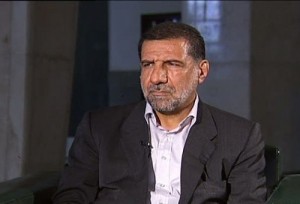 TEHRAN (FNA)- A senior Iranian lawmaker voiced satisfaction in the recent expert-level nuclear talks between Iran and the six major world powers in Vienna, and cautioned the Sextet not to try to include new issues in the negotiations.
TEHRAN (FNA)- A senior Iranian lawmaker voiced satisfaction in the recent expert-level nuclear talks between Iran and the six major world powers in Vienna, and cautioned the Sextet not to try to include new issues in the negotiations.Speaking on Saturday, member of the Iranian Parliament's National Security and Foreign Policy Commission Esmayeel Kosari said that talks between Iran and the Group5+1 (Russia, China, the US, Britain plus Germany) only include the nuclear issue and added that the negotiations have nothing to do with other topics.
He emphasized that Iran would continue negotiations with the G5+1 only within a nuclear framework.
Kosari went on to say that Iran proved to the world during the Geneva talks that it is only pursuing its legitimate rights.
Iran and the G5+1 started expert-level talks in Vienna on Wednesday.
The meeting was held on the sidelines of the International Atomic Energy Agency (IAEA) Board of Governors session.
Experts of the seven nations discussed Iran's uranium enrichment, removal of sanctions and technical nuclear cooperation in their meeting.
Iran and the six world powers ended their expert-level talks in Vienna on Friday.
The experts' talks between Iran and the six world powers lasted for three days.
IAEA Director General Yukio Amano in his recent report on Iran announced that Tehran is complying with its obligations under the deal it struck with the six world powers last November.
According to a deal which took effect on January 20, the six countries undertook to provide Iran with some sanctions relief in exchange for Iran agreeing to limit certain aspects of its nuclear activities during a six-month period.
Iran and the world power also agreed that no nuclear-related sanctions will be imposed on Iran during the same period.
The report also confirmed that no additional uranium enrichment centrifuges have been installed at Iran�s Natanz and Fordo nuclear facilities.
Iran has also provided the IAEA with an updated Design Information Questionnaire (DIQ) for its Heavy Water Reactor in Arak.
�The measures implemented by Iran and the further commitments it has undertaken represent a positive step forward,� the IAEA report said.
After the November 24 interim agreement between Iran and the sextet, Head of the Atomic Energy Organization of Iran (AEOI) Ali Akbar Salehi underlined that Iran's enrichment right has been clearly stipulated in the Geneva accord, although the Non-Proliferation Treaty (NPT) had already granted the right to the country.
Following the November agreement, Iran and the Group 5+1 held several rounds of expert talks on how to enforce the deal before they could come into terms over the date for starting implementation of the agreement. Eventually on January 20, a confidential report by the IAEA said that Iran has halted its 20-percent enrichment activity under the Geneva deal. Hours later the US and the EU removed part of their sanctions against Tehran.
A month later in February, Iran and the G5+1 held a meeting in Vienna to work on a comprehensive deal and they agreed to hold a new round of talks in the same city on March 17-20.
Following the meeting, Iranian Foreign Minister Mohammad Javad Zarif and EU foreign policy chief Catherine Ashton, who presides over the delegations of the six world powers, voiced pleasure in their rapid agreement on the agenda and dates of their future meetings, and stressed that they had made good progress in this regard.
Zarif said that there would be six rounds of monthly talks between the seven countries by late June to pave the way for a comprehensive deal in July.
By Fars News Agency
The Iran Project is not responsible for the content of quoted articles.










